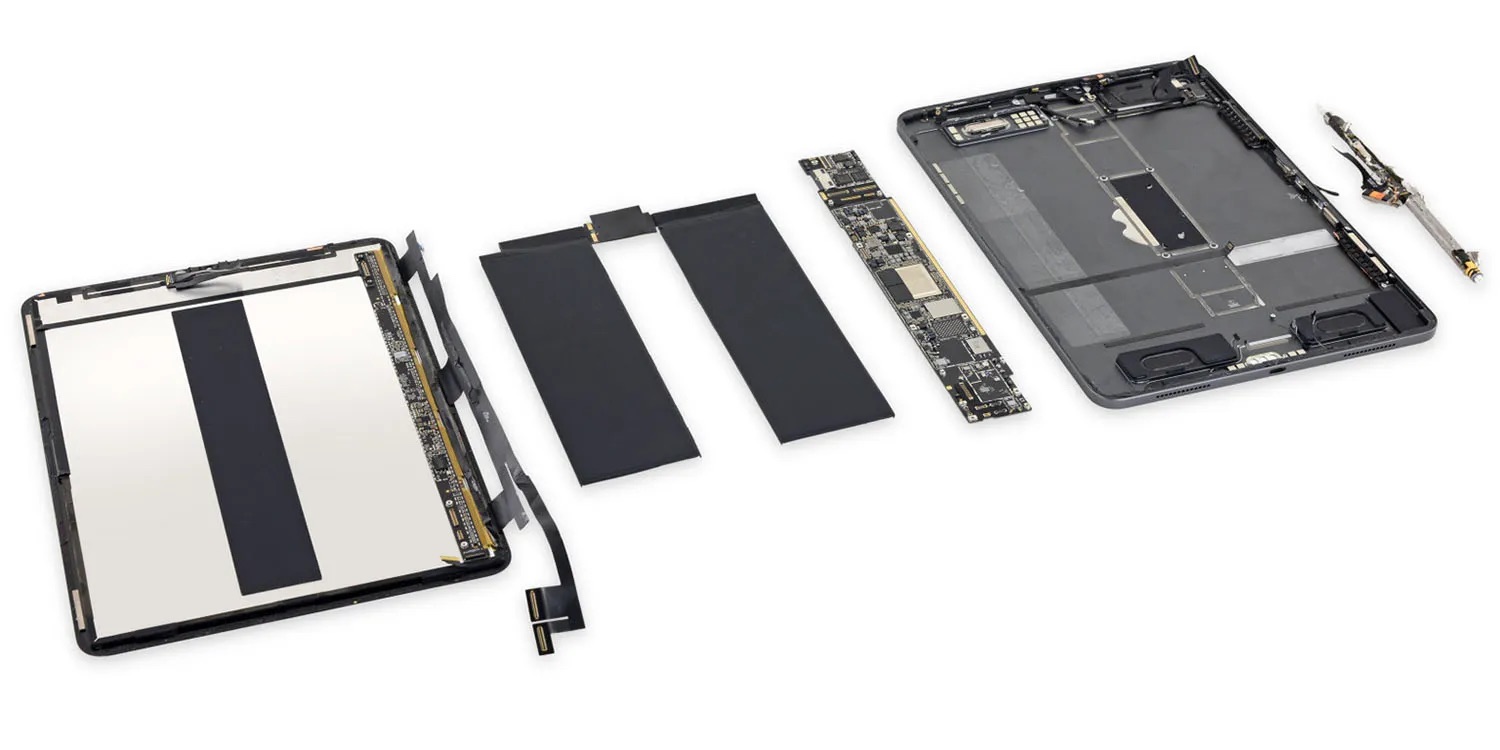Curious what chip Apple has put in its iPads over the years, or which A or M series is used in your current iPad? What about the chip that was used in the original iPad? Read on for a complete list of iPad chips included in each model since 2010.
Apple focuses more on the capabilities of its devices than the detailed specifications they are based on. But a big part of it is building your own SoC (system on a chip) for your iPads (and iPhones) that is fine-tuned to work as powerfully and efficiently as possible with iPadOS and iOS. It all really started with the iPhone and led to the A-series chips in the iPad, and Apple’s M-series Silicon for Macs and iPads.
One example of this impressive hardware and software development was 2019, when the 4GB RAM iPhone 11 Pro Max outsold the 12GB RAM Samsung Galaxy Note 10+ in a speed test. The tight integration between the iPhone and iOS hardware made up for the memory difference by more than 8 GB. The same is usually true for iPads and Macs as compared to Android tablets and PCs.
We also have articles on iPhone/iPad RAM, ICs and mAh battery specifications for each model:
So, here is the full list of iPad chips:
List of iPad chips: what is each iPad model based on?
Note. An Apple News error can cause the information below to display incorrectly. Read more on .com.
iPad Pro 12.9″ 5th generation chip?
Apple Silicon M1 – CPU 8 cores: 4 performance, 4 efficiency, 3.2 GHz; GPU 8 cores
iPad Pro 11″ 3rd generation chip?
Apple Silicon M1 – CPU 8 cores: 4 performance, 4 efficiency, 3.2 GHz; GPU 8 cores
Chip iPad Air 5th generation?
Apple Silicon M1 – CPU 8 cores: 4 performance, 4 efficiency, 3.2 GHz; GPU 8 cores
Chip iPad mini 6th generation?
A15 Bionic – 6 cores: 2 performance, 4 efficiency, 3.2 GHz
9th generation iPad chip?
A13 Bionic – 6 cores: 2 performance, 4 efficiency, 2.66 GHz
Chip iPad Air 4th generation?
A14 Bionic – 6 cores: 2 performance, 4 efficiency, 3.0 GHz
8th generation iPad chip?
A12 Bionic – 6 cores: 2 performance, 4 efficiency, 2.5 GHz
iPad Pro 12.9″ 4th generation chip?
A12Z Bionic – 8 cores: 4 performance, 4 efficiency, 2.5 GHz
iPad Pro 11″ second generation chip?
A12Z Bionic – 8 cores: 4 performance, 4 efficiency, 2.5 GHz
7th generation iPad chip?
A10 Fusion – 4 cores: 2 performance, 2 efficiency, 2.3 GHz
Chip iPad mini 5th generation?
A12 Bionic – 6 cores: 2 performance, 4 efficiency, 2.5 GHz
Chip iPad Air 3rd generation?
A12 Bionic – 6 cores: 2 performance, 4 efficiency, 2.5 GHz
iPad Pro 12.9″ 3rd generation chip?
A12X Bionic – 8 cores: 4 performance, 4 efficiency, 2.5 GHz
iPad Pro 11″ chip?
A12X Bionic – 8 cores: 4 performance, 4 efficiency, 2.5 GHz
6th generation iPad chip?
A10 Fusion – 4 cores: 2 performance, 2 efficiency, 2.3 GHz
iPad Pro 12.9″ second generation chip?
A10X Fusion – 6 cores: 3 performance, 3 efficiency, 2.3 GHz
Chip iPad Pro 10.5″?
A10X Fusion – 6 cores: 3 performance, 3 efficiency, 2.3 GHz
5th generation iPad chip?
A9 – 2 cores: 1.85 GHz
iPad Pro 9.7″ chip?
A9X – 2 cores: 2.16 GHz
iPad Pro 12.9″ chip?
A9X – 2 cores: 2.26 GHz
Chip iPad mini 3rd generation?
A8 – 2 cores: 1.5 GHz
Chip iPad Air 2nd generation?
A8X – 3 cores: 1.5 GHz
Chip iPad mini 2nd generation?
A7 – 2 cores: 1.3 GHz
iPad Air chip?
A7 – 2 cores: 1.4 GHz
iPad mini chip?
A5 – 2 cores: 1 GHz
4th generation iPad chip?
A6X – 2 cores: 1.4 GHz
3rd generation iPad chip?
A5X – 2 cores: 1 GHz
2nd generation iPad chip?
A5 – 2 cores: 1 GHz
Original chip for iPad?
A4 – 1 core: 1 GHz
 iPad internals via iFixit
iPad internals via iFixit
Which iPad feature surprised you the most? Or what did you find most interesting about how Apple has used chips in the iPad over the years? Share your thoughts in the comments!
Thanks for reading our list of iPad chips!
Read more guides on:
Data sourced from iPhone Wiki and Mactracker.
similar
The post what is each model based on? appeared first on Gamingsym.
